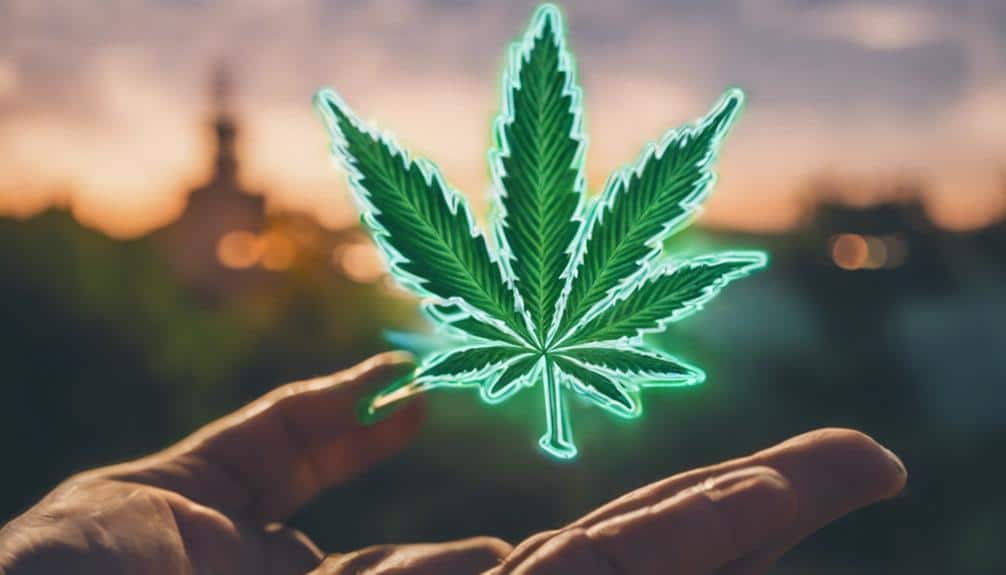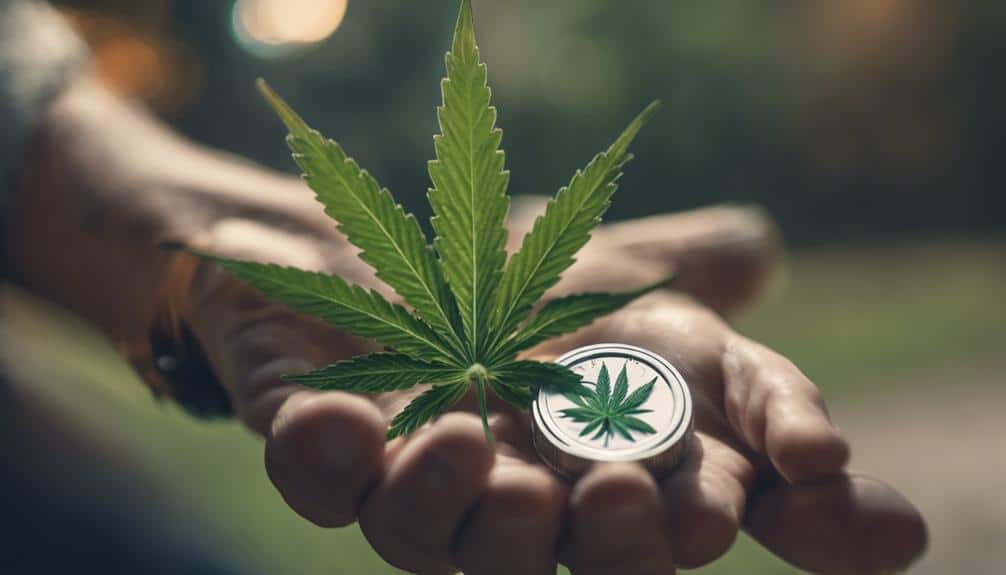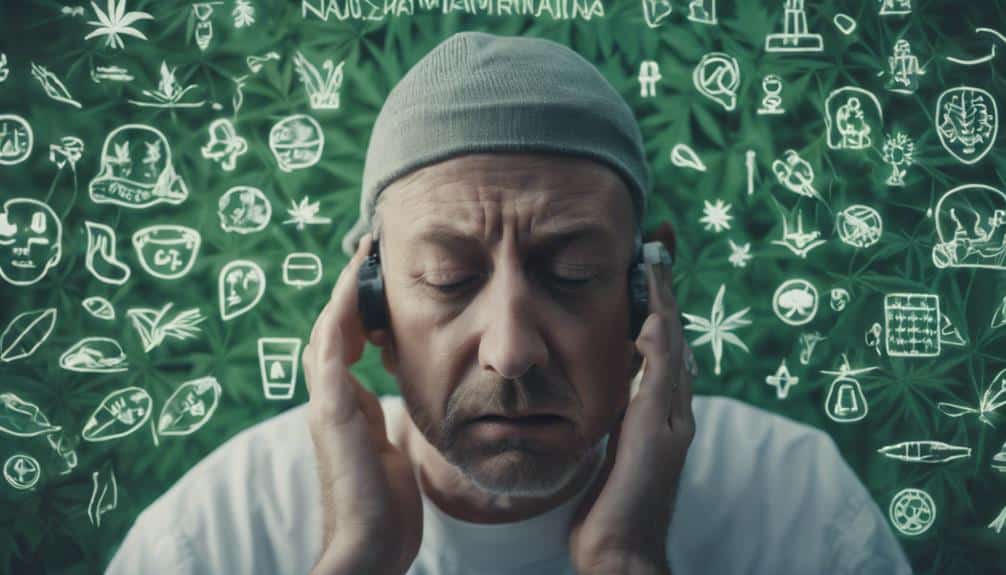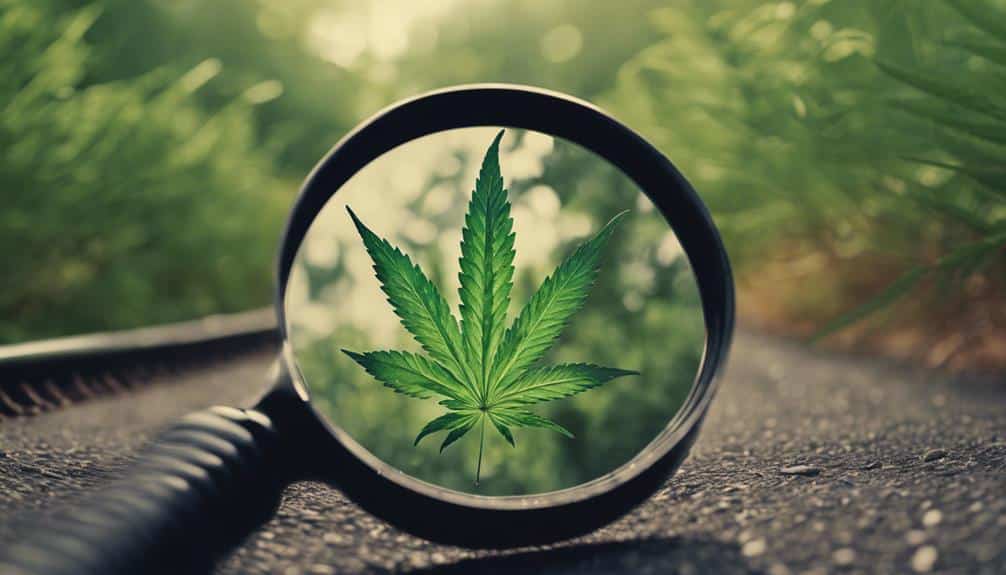Just as a key unlocks a door, medical marijuana potentially opens new pathways for managing mental health issues. You’ve likely heard about cannabinoids, such as THC and CBD, and their role in alleviating symptoms of anxiety, depression, and PTSD. But what does this mean for you as a Delaware patient? It’s about understanding the therapeutic potential and risks associated with this treatment option. Let’s explore the impact of medical marijuana on mental health and discover why so many Delaware patients are turning to it for relief.
Table of Contents
Understanding Medical Marijuana

To fully comprehend the implications of medical marijuana on mental health, it’s essential to first understand what medical marijuana is and how it works within the human body. Medical marijuana refers to the use of the Cannabis plant or its basic extracts for health treatment. The therapeutic applications are primarily attributed to its two active cannabinoid components: THC and CBD.
THC or delta-9-tetrahydrocannabinol is the psychoactive component that makes you feel ‘high’. It can help control symptoms like pain and nausea but can also induce feelings of anxiety or paranoia in some people.
CBD or cannabidiol doesn’t give you that ‘high’. It has shown promising results in reducing anxiety and potentially even combating psychosis. It has also been found to be a powerful anti-inflammatory agent which can be beneficial in treating conditions like Crohn’s disease.
The interaction of these cannabinoids with your body’s endocannabinoid system is key. They bind with specific receptors, primarily in the brain, influencing the release of neurotransmitters. This interaction can have profound effects on various aspects of your mental health.
In essence, understanding medical marijuana’s components and their therapeutic applications can help you better comprehend its potential benefits and risks, particularly concerning mental health.
Delaware’s Medical Marijuana Program
Navigating Delaware’s medical marijuana program can provide key insights into its structure, regulations, and the potential implications for patients’ mental health. Let’s delve into the Program Eligibility and Legal Regulations that govern this initiative.
Program Eligibility primarily depends on a diagnosis of a qualifying condition. This includes PTSD, Alzheimer’s disease, and severe debilitating pain that hasn’t responded to conventional treatment among others. If you’re living with such a condition, you’re a step closer to potentially benefiting from medical marijuana.
The Legal Regulations mandate that you must be a Delaware resident with a valid Delaware ID. You must also have an ongoing patient-doctor relationship characterized by frequent appointments where your doctor monitors your condition and response to treatment. It isn’t about getting a quick fix; it’s about sustained monitored care.
Importantly, the program isn’t carte blanche to use marijuana without restrictions. Lawful users must adhere to strict usage and possession limits. Any misuse can lead to severe legal consequences.
Understanding these nuances of Delaware’s medical marijuana program can empower you to make informed decisions about your mental health care under the supervision of a healthcare professional.
Medical Marijuana and Anxiety

How does medical marijuana interact with anxiety, one of the most pervasive mental health issues in our society today? Studies suggest that medical marijuana, specifically cannabinoids like CBD (cannabidiol), can play a significant role in reducing anxiety. This happens primarily through interaction with the endocannabinoid system in your body, which directly affects your mood, emotions, and stress levels.
Here’s how it works. The cannabinoids in medical marijuana bind to specific receptors in your brain, CB1 and CB2. This binding process helps regulate the release of neurotransmitters effectively reducing overactivity in your brain’s anxiety-response mechanisms. This results in a calming effect alleviating the symptoms of anxiety.
However, it’s essential to note that while medical marijuana has therapeutic uses, it isn’t a cure-all. Dosage and strain matter. Some strains high in THC (tetrahydrocannabinol) can induce paranoia exacerbating anxiety symptoms. Therefore, it’s crucial to consult with a healthcare provider familiar with medical marijuana applications to tailor an approach that best suits your needs.
Impact on Depression
Diving into the realm of depression, medical marijuana’s potential impact becomes even more noteworthy as emerging research points to its potential efficacy in mitigating depressive symptoms. If you’re searching for treatment alternatives understanding the role of this powerful plant could be essential.
Numerous studies suggest that medical marijuana may alleviate depression symptoms by acting on the endocannabinoid system a complex cell-signalling system involved in maintaining physiological balance. It’s believed that cannabinoids compounds found in marijuana could help restore normal endocannabinoid function thereby alleviating depression.
To delve deeper, consider these key insights:
- Recent studies show that medical marijuana can help improve mood, reduce anxiety, and enhance sleep quality.
- Some strains of medical marijuana particularly those rich in CBD may have antidepressant properties.
- Medical marijuana could serve as an adjunct to traditional depression treatments potentially enhancing their effectiveness.
- Side effects are generally mild and manageable but it’s crucial to discuss this with a healthcare provider.
PTSD and Medical Marijuana

When it comes to Post-Traumatic Stress Disorder (PTSD), medical marijuana’s potential therapeutic effects are garnering significant attention in the scientific community. You may wonder how this alternative treatment could help Delaware patients manage their PTSD symptoms.
Recent studies suggest that medical marijuana specifically Cannabinoid Therapy might play a key role in alleviating PTSD symptoms. This is due to the plant’s intrinsic chemical compounds known as cannabinoids which can interact with the human body’s endocannabinoid system. This synergistic interaction may help regulate mood, sleep, and stress responses all critical in managing PTSD symptoms.
The advancement in Cannabinoid Therapy offers hope for those suffering from PTSD. Preliminary findings indicate that medical marijuana may reduce nightmares flashbacks and anxiety common PTSD symptoms. Moreover, it may help improve sleep quality a significant challenge for many PTSD patients.
Yet, it’s essential to remember that while promising these findings are preliminary. Continued research is necessary to fully understand medical marijuana’s potential benefits and risks in treating PTSD. As always consult with a healthcare professional before starting any new treatment.
In essence, medical marijuana could be a valuable tool in the PTSD therapeutic arsenal potentially providing relief for those who need it most.
Other Mental Health Conditions
Beyond PTSD, medical marijuana’s potential extends to a broader spectrum of mental health disorders opening new avenues for alternative treatments. Its therapeutic edge is becoming increasingly recognized for conditions such as Bipolar Disorder and Schizophrenia.
For Bipolar Management, studies have shown that some patients find balance in their mood swings with the use of medical marijuana. It’s thought to help manage depressive and manic phases a significant breakthrough for those living with this condition.
In terms of Schizophrenia Treatment, while it’s essential to approach with caution some strains of medical marijuana have shown promising results. Low THC strains in particular are being studied for their potential to alleviate symptoms.
Your understanding of these benefits can be enhanced by considering the following points:
- Medical marijuana’s impact varies from person to person necessitating individualized treatment plans.
- The strain and dosage of medical marijuana are crucial factors in its effectiveness.
- Regular follow-ups with healthcare providers are essential to monitor and adjust treatment.
- Research is ongoing and while promising, medical marijuana isn’t a universal cure.
Potential Side Effects

While acknowledging the promising benefits of medical marijuana, it’s equally important to consider potential side effects that can occur as these vary widely among individuals and can significantly impact treatment outcomes.
Let’s delve into ‘Dosage Dilemmas’. The right dosage is crucial in medical marijuana use. Dosage dilemmas can lead to overconsumption resulting in adverse effects such as dizziness paranoia and anxiety. It’s pertinent to start with a low dose and gradually increase until the desired effect is achieved under the guidance of a healthcare professional.
‘Strain Selection’ is another critical aspect to consider. Different strains of medical marijuana come with different concentrations of THC and CBD, the primary active ingredients known to affect mental health. Strains high in THC often lead to anxiety and paranoia more so in individuals with a pre-existing mental health condition. CBD-rich strains on the other hand offer therapeutic benefits with fewer side effects.
Ultimately, you must understand that while medical marijuana can be a powerful tool for mental health management it’s not without potential complications. It’s about finding the right balance between beneficial effects and potential side effects through careful dosage and strain selection.
Patient Testimonials in Delaware
Turning our attention to Delaware let’s review patient testimonials to gain deeper insights into the real-world effects of medical marijuana on mental health.
A common theme in these testimonials is the transformational effect of medical marijuana on patients’ quality of life. This is particularly evident in patients suffering from mental health issues such as anxiety depression and PTSD. Here are some highlights:
- Patients report significant reductions in anxiety levels enabling them to better manage everyday responsibilities.
- Many individuals with depression have noted an improved mood and increased motivation after beginning their medical marijuana regimen.
- PTSD sufferers testify to the calming effects of medical marijuana which has helped them cope with traumatic memories and insomnia.
- Some patients also mention the supportive role of patient advocacy groups in navigating the access challenges to medical marijuana.
However, it’s not all positive. Some patients have reported side effects such as dizziness and increased anxiety highlighting the need for personalized treatment plans and careful monitoring.
These testimonials underscore the potential of medical marijuana as a mental health treatment. However, they also stress the importance of patient advocacy and the continuous need to address access challenges.
Future Research Directions

Diving into future research, it’s crucial that you consider a myriad of opportunities and directions that could further illuminate the potential benefits and risks of using medical marijuana for mental health treatment. It’s not a one-size-fits-all solution, and understanding its nuances is essential.
Moving forward, research limitations need to be addressed. For instance, a lack of robust large-scale placebo-controlled trials hampers our ability to draw definitive conclusions about the efficacy and safety of medical marijuana. Additionally, due to heterogeneity among mental health conditions, a stratified approach is necessary when investigating the therapeutic potential of medical marijuana for each specific disorder.
Regulatory challenges also pose significant hurdles in advancing our understanding. Restrictive legislation such as classification of marijuana as a Schedule I drug impedes access to quality standardized cannabis products for research purposes. It’s vital that we advocate for policy changes to facilitate more rigorous comprehensive investigations.
Future research should also delve deeper into the biological mechanisms underlying the effects of medical marijuana on mental health. This could lead to the development of more targeted effective and safe therapeutic strategies. As you serve others remember that knowledge empowers action. Let’s strive to illuminate the path with robust scientific research.
Conclusion
In a nutshell, medical marijuana’s potential in managing mental health issues in Delaware seems promising. It could be a game changer for those battling anxiety depression or PTSD. However, it’s not a one-size-fits-all solution. The key lies in careful dosage strain selection and regular consultations with healthcare providers. Personal experiences are encouraging yet more research needs to be done to fully unlock its therapeutic potential. It may not be a silver bullet but it’s certainly worth exploring.
If you’re curious to learn more about this or have any queries, I warmly invite you to visit us at Cannabis Docs of Delaware. We’re always here to help you navigate your journey towards better mental health through medical marijuana. Feel free to give us a call at (855) 420-6797. Your well-being is our top priority and we’re excited to be part of your journey.

